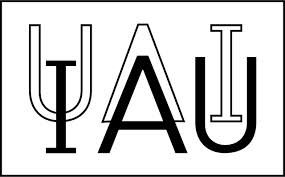Sub-Group Name
Neurodiversity and Mental Health
Coordinator: Natalia Lewandowska
Sub-Group Description
This SWG focuses on the rather broad topics of neurodiversity and mental health.
As one of the oldest natural sciences, Astronomy fascinates a large number of people from different age groups, different professions and with different cultural backgrounds. As such Astronomy is an international branch of science. Astronomical investigations and research projects are carried out by a multilayered community. The multilayered nature is not only shown by different cultures, but also by different learning experiences as well as skills, among others.
Members of the neurodiverse community have different needs in accessing various resources. To strengthen the collaboration within the astronomical community, one main goal of this group is to build a stronger communication between members and non-members of the neurodiverse community by exchanging ideas of better inclusion and develop according strategies and solutions.
Another topic in the astronomical community which has increasingly gained attention in the last years is mental health. Mental health in academia has been in the center of attention due to the fact that many scientists struggle with different forms of mental health problems, but often keep it a secret due to fear of stigmatization and resulting drawbacks in their professional lives.
Studies show that mental health issues can be developed already at an early student level. A further goal of this group is to actively discuss and identify factors which can cause depression, anxiety and other forms of mental health problems in students and other members of the scientific community. Identifying such problems will lead to the development of solutions how to identify and approach situations resulting from mental health problems. A strong emphasis will be given on the topic of mentoring (also including peer mentoring).
Sub-Group Goals
• Identifying the needs of different groups of the neurodiverse community by inviting members to the group meetings and let them report about the struggles that they encountered. Inviting members in teaching, mentoring and other leading positions who are not members of the neurodiverse community to share their experiences regarding working with neurodiverse scientists as well. That way a communication bridge will be built.
• Making the astronomical community aware of the needs of the neurodiverse community to be successfully included as members of the community (in terms of access to research and teaching material as well as mentoring experience).
• Development of guidelines for meetings and conferences for neurodiverse members of the astronomical community.
• Identifying triggers of mental health problems in the professional lives of members of the astronomical community and develop solutions in terms of supervision and mentoring to avoid triggers of anxiety and the development of depression.
• Raising awareness and teaching the astronomical community to actively engage in the topic of mental health so that future generations of scientists learn that mental health problems are not a stigma.
• Developing strategies and resources how students and other members of the astronomical community who are struggling with mental health problems can reach out for help.
